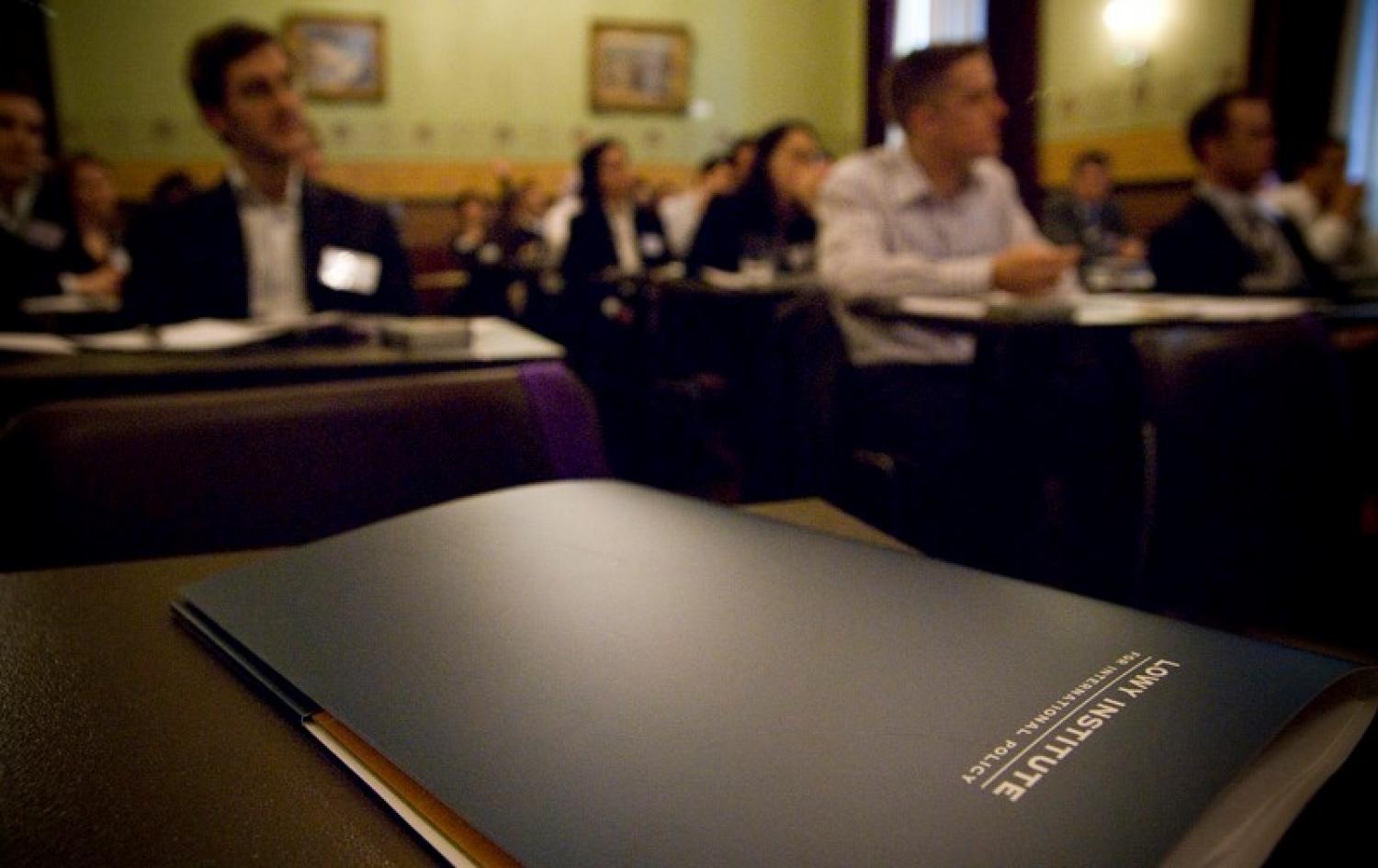There is a nice little scene near the start of David Lean’s cinematic masterpiece, Lawrence of Arabia. General Allenby, the former commander of British forces in the Middle East during the First World War, is descending the stairs of St Paul’s Cathedral at the conclusion of T.E. Lawrence’s memorial service. He is fronted by a journalist looking for a comment on his former charge. Allenby looks at him wearily and says, “What, more words…?”
Faced with the numerous obituaries and observations that have been written about him since his passing, I could imagine Allan Gyngell saying the same thing, reflecting both his humility and his concision. But if any person that I have known deserved all these words and more, it is Allan.
In listing his achievements many have mentioned his role here at the Lowy Institute, as its founding Executive Director. But I don’t think anyone has really captured the scale of his achievement here, and more importantly, the nature of it.
Because it’s easy to look at the Lowy Institute today, its successes and its place in the foreign policy landscape in Australia and around the world and assume it was always thus. Some might argue that the generosity with which Frank Lowy established the Institute made success inevitable.
But few of us who were there at the beginning with Allan thought so. None of us had worked in a think tank before. There was a feasibility study prepared for the Institute by the current Executive Director Michael Fullilove as a guide. The much larger American prototypes were an example to follow. But beyond that we were on our own, which, remarkably, did not faze Allan one bit.
His approach was to grow organically: to try stuff, to experiment and to evolve. It was an approach which placed a premium on creativity and ideas, which he gave us ample space and strong encouragement to develop. Allan sowed a thousand seeds, not all of which bloomed of course. But it was an invigorating place to work.
Even more remarkable was the way Allan went about staffing the research side of the Institute. He had the money to hire the biggest names in the field. Instead, he took a punt on younger, hungrier, largely unknown stock, with a bit of experience thrown in.
In writing this reflection I spoke to some of my former research colleagues from the Institute’s first year: Malcolm Cook, Mark Thirlwell, Michael Fullilove and Alan Dupont. We shared a similar recollection of that time and the way Allan presided over it.
I remember that on my first day pretty much the only thing Allan said to me was, “there is no in-tray”. For someone who had just left the public service this was both liberating and terrifying. It was a measure of the enormous trust he placed in us, of his deft management of people, and of his curiosity and openness to all ideas and good argument.
Allan believed there was a kernel of wisdom in most positions or perspectives. There was no Lowy Institute line or view. As Mark Thirlwell noted to me, Allan “valued nuance, complexity and debate and distrusted simple answers”. Allan encouraged us to challenge conventional wisdom, or as he put it, “to fart in church”. He was always keen to lift others and encourage new voices.
A lot of people have contributed to the success of the Lowy Institute over the years. But it was Allan who gave the Institute – and gave many of us – a great beginning. Advising young officers of the Arab Bureau T.E. Lawrence once wrote “that a bad start is hard to atone for”. Allan Gyngell taught us the value of a really good one.

